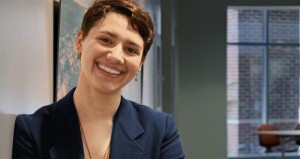Heather Winter ’16 (CAHNR) explored her interest in bioactive food components through undergraduate research. She shares her reflections on the impact of her research experiences in the essay below.
My journey into scientific research began with a class in nutrition that I took at Manchester Community College, which sparked my interest in researching the medicinal functions of food, and its bioactive components. After earning an Associate’s degree from MCC, I began studies in Nutritional Sciences at the University of Connecticut. I soon learned from my advanced nutrition classes that I was primarily interested in the molecular side of nutrition, and upon the recommendation of my advisor, began looking into research being conducted in laboratories within UConn’s Nutritional Sciences department.
My search led me to contact Dr. Christopher Blesso, whose lab researches the use of bioactive food components, such as polyphenols in elderberries and grapes, for the prevention or reversal of chronic diseases. I started independent study research in the first semester of my senior year, and gained my introductory experience in laboratory work. I shadowed the graduate students and advanced undergraduate students, familiarizing myself with laboratory techniques and the various experiments being conducted in the lab. With mentoring from the graduate students, I learned how to perform assays, such as triglyceride quantification from plasma samples, and carried out data analysis.
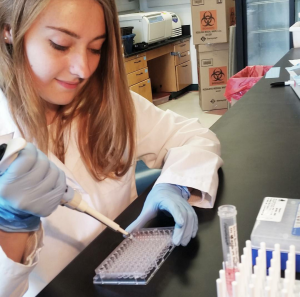 As I progressed in the laboratory, Dr. Blesso and I developed ideas for my own independent project, and I chose to learn cell culturing techniques so I could carry out experiments focusing on a bioactive component of milk called sphingomyelin. My interests were in studying the role of sphingomyelin as a dietary intervention for non-alcoholic fatty liver disease, modeling the disease state in a cancerous liver cell line. Once I had a plan for my own research project, Dr. Blesso suggested that I apply for the OUR Supply Award to help fund my experiments.
As I progressed in the laboratory, Dr. Blesso and I developed ideas for my own independent project, and I chose to learn cell culturing techniques so I could carry out experiments focusing on a bioactive component of milk called sphingomyelin. My interests were in studying the role of sphingomyelin as a dietary intervention for non-alcoholic fatty liver disease, modeling the disease state in a cancerous liver cell line. Once I had a plan for my own research project, Dr. Blesso suggested that I apply for the OUR Supply Award to help fund my experiments.
After receiving the news that my OUR application was accepted, I was excited to conduct my own cell culture experiments with sphingomyelin. In addition to cell culture techniques, I learned how to perform lipid and protein extractions, then perform further biochemical assays to quantify the results of my cell culture experiments. Based upon the data I collected, I was able to perform a qualitative analysis of the role of sphingomyelin and determine its active function in reducing lipid accumulation in liver cells. The data I collected provided a foundation for the laboratory to move forward with further experiments to assess the function of sphingomyelin, and its potential mechanisms of action.
My undergraduate research experience allowed me to discover my ability to excel in a laboratory environment, and after graduation, led to the opportunity for me to begin working as a Research Specialist in UConn’s department of Pharmaceutical Sciences, focusing on natural products research.
Along my journey in scientific research as an undergraduate, I gained an incredible amount of knowledge, and developed many skills that have been fundamental for my advancement in research after graduation. I am immensely thankful for those who provided mentorship throughout my undergraduate research, and for the opportunity to conduct scientific research from such an early stage in my career.
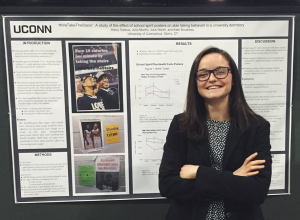 Our projects were completed in Spring 2015 under the guidance of
Our projects were completed in Spring 2015 under the guidance of 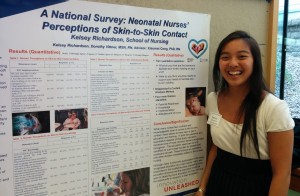
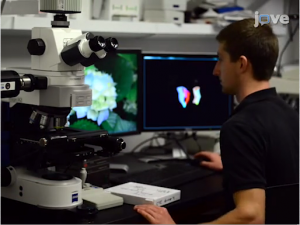
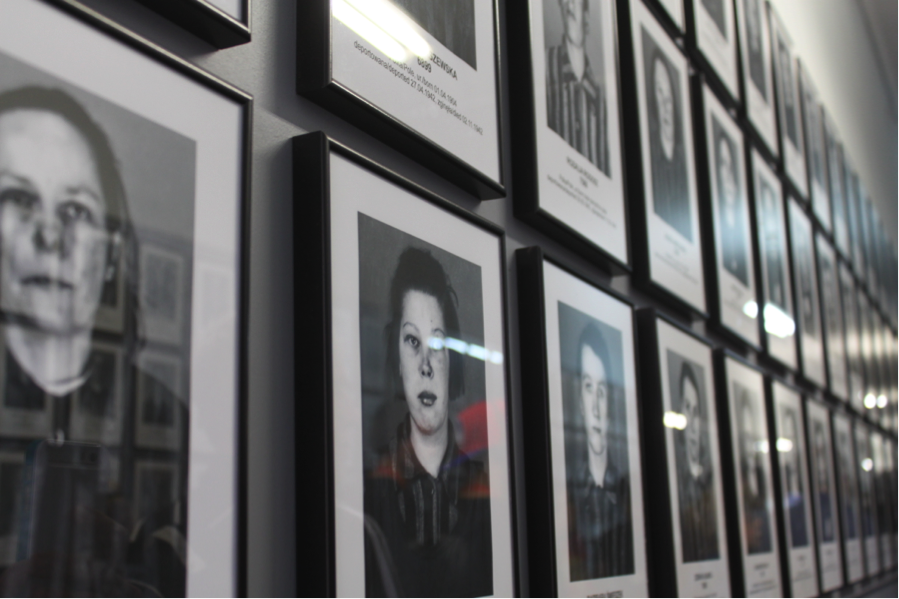
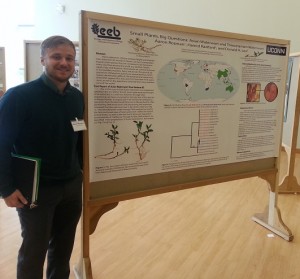
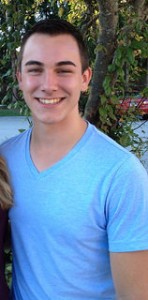 Chris Kegler ’15 (CAHNR, CLAS) received a donor-funded
Chris Kegler ’15 (CAHNR, CLAS) received a donor-funded 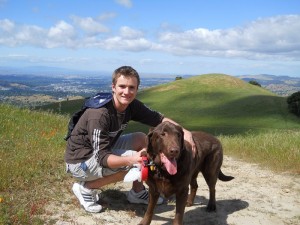
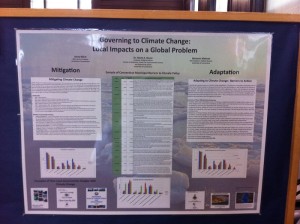
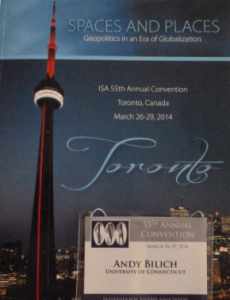
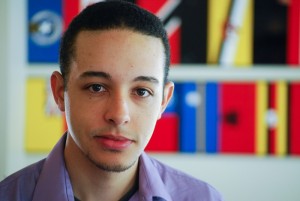 Carl D’Oleo-Lundgren ’14 (CLAS), an individualized major in international relations, aspires to earn a master’s degree and join the Foreign Service. As part of his undergraduate studies, Carl collaborated on a
Carl D’Oleo-Lundgren ’14 (CLAS), an individualized major in international relations, aspires to earn a master’s degree and join the Foreign Service. As part of his undergraduate studies, Carl collaborated on a 